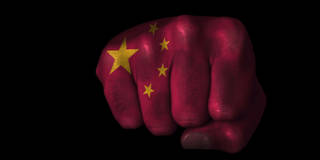Sergei Guriev
Says More…
This week in Say More, PS talks with Sergei Guriev, Provost and Professor of Economics at Sciences Po and co-author (with Daniel Treisman) of Spin Dictators: The Changing Face of Tyranny in the 21st Century.
Project Syndicate: Last June, you called for an immediate price cap on Russian energy imports. Six months later, the G7 imposed one. But some – including Ukrainian President Volodymyr Zelensky – say it is too little too late. Do you agree? How big a toll are Western sanctions targeting Russia’s energy revenues taking?
Sergei Guriev: I still believe that the oil-price cap is the right instrument, and was glad to see it implemented, though of course I would have preferred to see it in place sooner.
On the third day of the war, the West sanctioned Russia’s central bank, freezing a reported $300 billion in reserves. But the delay in capping oil prices enabled Russia to replenish its war chest. Its current-account surplus for 2022 was nearly $230 billion, almost twice as high as in 2021. We should remember that every billion petrodollars in Russia’s hands is a billion dollars’ worth of munitions – including Iranian drones – to be used to kill Ukrainians.
